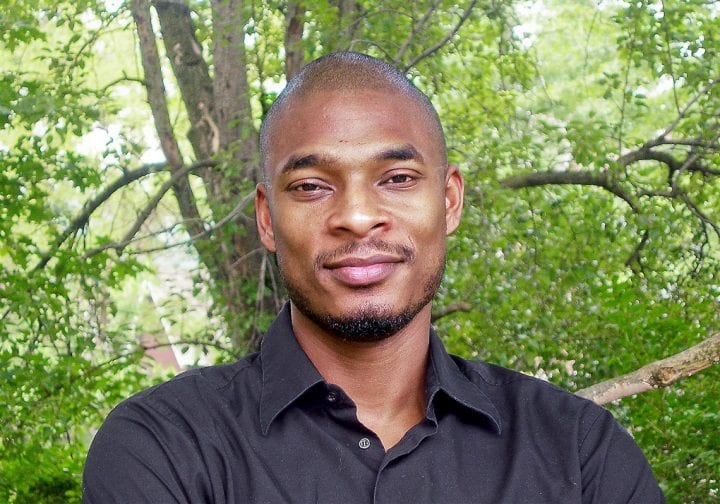Terrance Hayes’ poetry is nimble and surprising, constantly shifting the modes and means of poetic expression, while drawing from an extensive reserve of linguistic variance and sonic techniques to create poems that insinuate themselves, both musically and emotionally, within a reader.
Hayes was born in Columbia, South Carolina, in 1971 and has published several books of poetry, including Lighthead (2010), Wind in a Box (2006), Hip Logic (2002), and Muscular Music (1999). Lighthead was named the winner of the National Book Award for Poetry in 2010, and Hip Logic won the 2001 National Poetry Series and was a finalist for the 2001 Los Angeles Times Book Award.
Speaking with The Missouri Review‘s Jason Koos, Hayes notes that “[Thelonius] Monk says, ‘Man, every time you play you’re rehearsing!’ And I thought, that’s profound. It’s true, every poem is a rehearsal for the next poem, which is a rehearsal for the next poem. The idea of improvisation, rehearsal, movement, experiment—that’s what I’m interested in as an artist.” (2006) The improvisational skill of Hayes allows him to engage with and bend numerous traditions, styles, and cultural artifacts through unique and often explosive linguistic constructions, creating new shapes and forms of understanding through the variance of linguistic perspective.
Hayes received a B.A. from Coker College in South Carolina in 1994, where he was an Academic All-American, and an M.F.A. from the University of Pittsburgh in 1997. Writing of Lighthead in The Bee’s News, Abigail Deutsch describes it as “a rollicking, refined volume,” wherein “Hayes telescopes inward from generality to particularity, from ‘the African-American’ to a single person.” The linguistic gyrations and playfulness underscore a concern with finding and examining the roots of social phenomena and the individual’s role in a broader social participation. In this volume, Hayes “continues to tweak and torque, sneaking in a ‘sliver-thin silver fish,’ sitting with a ‘silk slick black back- / talking cousin.'” Hayes’ gift for musical and poetic variance also enables him to take on the roles and identities of a diverse and surprising array of speakers, and, through a keen ear for musical patterns in speech and language, the myriad voices and intonations become fundamentally about human expression. His poems are “less about semantics than about sonics, granting Lighthead the feel of a variety show, with music breaking up the acts.”
Hayes is the recipient of a Whiting Writers Award, a Pushcart Prize, three Best American Poetry selections, and fellowships from the National Endowment for the Arts and the Guggenheim Foundation. He is a professor of creative writing at Carnegie Mellon University and lives in Pittsburgh, Pennsylvania, with his wife, poet Yona Harvey, and their children Ua and Aaron.
